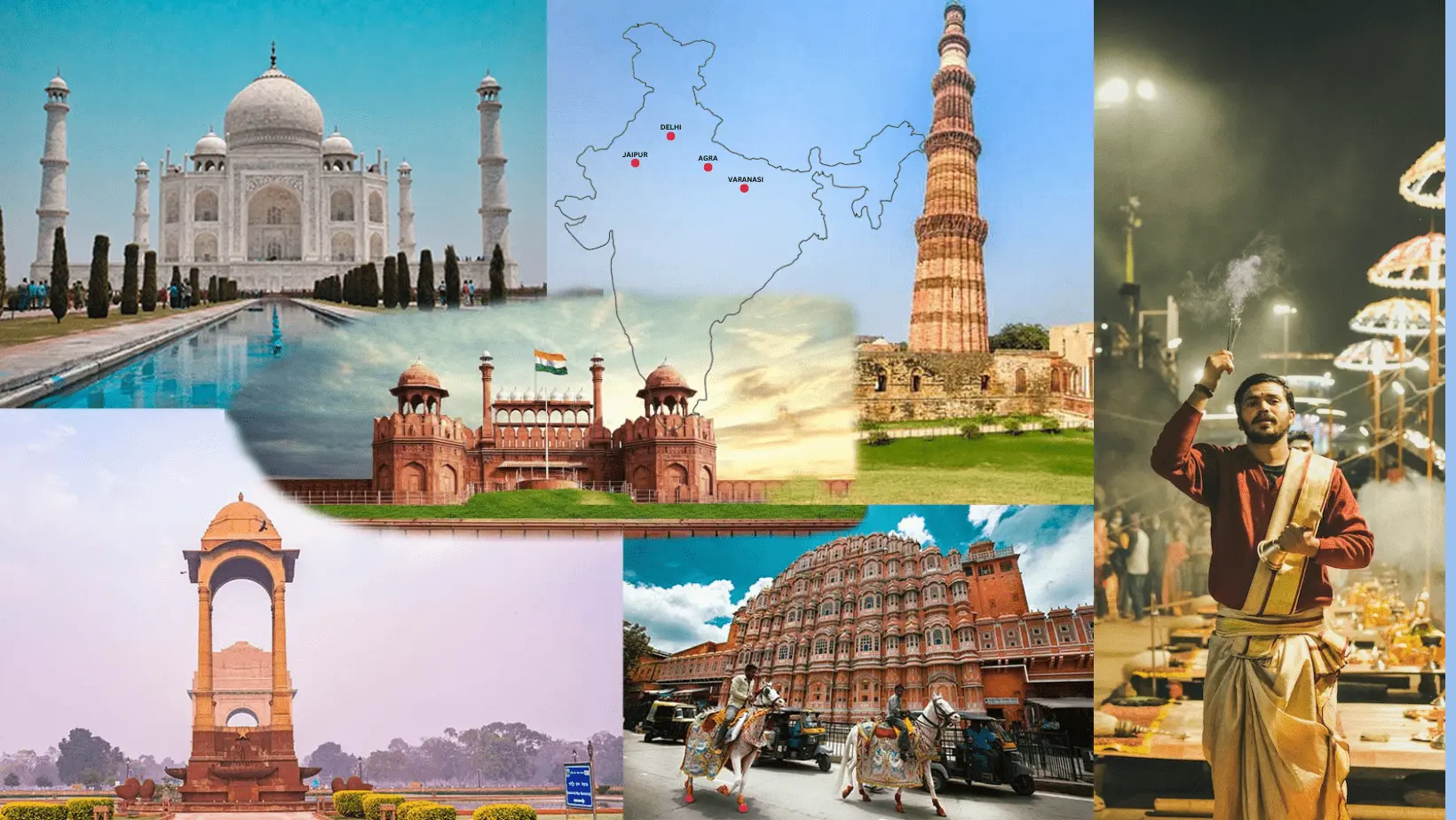Top Tips for Foreign Tourists Exploring India’s Golden Triangle
Top Tips for Foreign Tourists Exploring India’s Golden Triangle
Blog Article
India’s Golden Triangle is one of the most popular travel circuits for international visitors, offering a mix of history, culture, architecture, and vibrant city life. This famous route connects Delhi, Agra, and Jaipur, forming a triangle on the map. For foreign tourists planning this journey, preparation is key to enjoying a smooth and rewarding experience. This guide provides essential tips covering everything from planning and packing to cultural etiquette and health precautions.
Plan Your Itinerary Thoughtfully
Foreign tourists are often on limited schedules, so planning the right number of days is important. Ideally, a Golden Triangle Tour lasts between 5 to 7 days, giving you ample time to explore Delhi’s historical sites, Agra’s Taj Mahal, and Jaipur’s palaces and forts. You may also consider extending your trip with add-ons like a Golden Triangle Tour With Ranthambore to experience wildlife safaris, or a Golden Triangle Tour with Varanasi for a spiritual immersion on the banks of the Ganges.
When designing your itinerary, take note of travel distances. Though the cities are relatively close (between 200 to 250 km apart), road journeys can take several hours due to traffic. Alternatively, trains and domestic flights are convenient and often time-saving.
Best Time to Visit
Climate is a significant factor for foreign visitors. The best time to explore the Golden Triangle is between October and March when the weather is cooler and more comfortable for sightseeing. Avoid the peak summer months of April to June, as temperatures can soar above 40°C (104°F). If traveling during India’s monsoon season (July to September), be prepared for occasional heavy rains, especially in Delhi and Agra. During the winter months, mornings and evenings can be chilly, so packing layers is advisable.
Understand Local Customs and Etiquette
Respecting local traditions will enrich your travel experience. In religious sites, dress conservatively—covering shoulders and knees is expected for both men and women. Remove shoes before entering temples and mosques. When greeting locals, a polite “Namaste” with folded hands is always appreciated. Avoid public displays of affection, as these may attract unwanted attention in certain areas. Photography rules vary at heritage sites; always check if permits are required or if restrictions apply.
Stay Healthy and Safe
Foreign tourists should take basic health precautions. Drink only bottled or filtered water, and avoid consuming raw street food unless you are confident about hygiene standards. Carry a small first aid kit, including medications for common issues such as indigestion or headaches. It is also wise to ensure your travel insurance covers medical emergencies in India.
For personal safety, use registered taxis or reputable ride-hailing apps like Ola or Uber. When exploring markets or crowded areas, keep valuables secure and be mindful of pickpockets. Scams targeting tourists exist, so stay alert and verify information, especially when booking services or excursions on the spot.
Manage Money and Connectivity
Most places on the Golden Triangle route accept cards, but it is advisable to carry some cash for smaller vendors, local markets, or rural areas. ATMs are widely available in cities, but always inform your bank of your travel plans to avoid issues with card usage.
For mobile connectivity, purchasing a local SIM card upon arrival is recommended. Providers like Airtel or Jio offer affordable data plans that make navigation, translations, and online bookings easier during your trip. Having reliable internet access also helps in using digital maps and ride-booking apps efficiently.
Transport Tips
Getting around the Golden Triangle is generally straightforward. Many foreign tourists hire private cars with drivers, as it offers flexibility and comfort. Trains are another popular option, providing a glimpse into everyday Indian life. Booking train tickets in advance is highly recommended as seats often fill quickly, particularly on premium or express services.
For shorter distances within cities, auto-rickshaws are a fun and inexpensive way to travel, though it’s important to agree on the fare beforehand or request they use the meter. Public buses exist but may be confusing for new visitors due to language barriers and routing complexities.
Accommodation Insights
From luxury hotels to boutique guesthouses and homestays, the Golden Triangle offers a wide range of accommodation options. It’s best to choose places that have strong reviews and international recognition for their quality and safety standards. Booking your stays in advance ensures you have reliable arrangements, particularly during peak tourist seasons or major festivals like Diwali or Holi.
Respect for the Environment and Heritage
Foreign tourists can contribute positively by practicing responsible tourism. Avoid littering at heritage sites, use reusable water bottles, and support local artisans by purchasing authentic handicrafts. When visiting wildlife reserves like Ranthambore, follow park rules strictly to protect flora and fauna. Sustainable choices during your Golden Triangle journey help preserve India’s cultural and natural heritage for future generations.
Report this page